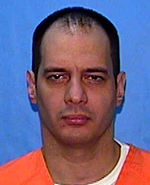- Jimmy Ryce
-
Samuel James Ryce Born September 26, 1985 Died September 11, 1995 (aged 9)
Redland, FloridaSamuel James "Jimmy" Ryce (September 26, 1985–September 11, 1995) was a child that was abducted, raped and killed by Juan Carlos Chavez in Redland, Florida, United States.
Contents
Jimmy's murder
On September 11, 1995, nine-year-old Jimmy was taking the bus from school. He was dropped off, along with ten classmates, and had to walk less than a block to his home. According to the confession of Juan Carlos Chavez, Chavez blocked Jimmy's path with his pickup truck and forced him at gunpoint into the truck. Chavez took Jimmy to his trailer where he raped him. About four hours later[1], when he heard a helicopter hovering above, Jimmy ran to the door and tried to open it only to be shot in the back by Chavez, who held the child until he took his last breath.
The child's dismembered body was found three months later near Chavez's trailer.
Capturing Juan Carlos Chavez
Chavez worked for the Scheinhaus family. He lived in a trailer on their property. Around the time of Jimmy's disappearance, Scheinhaus reported several items missing from her home including a handgun and jewelry. Scheinhaus suspected Chavez, but had no evidence to support her suspicions. Aided by a locksmith, Scheinhaus entered Chavez's apartment. She found her handgun and Jimmy's bookbag. She reported her findings to the Federal Bureau of Investigation on December 5, 1995. Chavez was found a day later and taken in for questioning.
Being advised of his rights and after a 55-hour-long interrogation, Chavez openly admitted to abducting, raping and murdering Jimmy. Chavez also led police to the boy's body, which was dismembered and hidden in cement in three plastic planters.
The murder case
In the fall of 1998, Juan Carlos Chavez was convicted of kidnapping, sexual assault, and murder. Chavez was given the death penalty. The Florida Supreme Court affirmed his conviction and sentence on November 21, 2002.[2] In July 2004, Chavez filed a motion for post-conviction relief, alleging ineffective assistance of counsel. The motion was amended in May 2005[3] and was heard in Miami-Dade Circuit Court on January 9, 2007.[4] The circuit court judge denied the motion on March 8, 2007.[5] Chavez filed a 3.851 Motion Appeal in the Florida Supreme Court on May 23, 2007 that is pending.
The Jimmy Ryce Act
The Jimmy Ryce Act (Jimmy Ryce Involuntary Civil Commitment for Sexually Violent Predators' Treatment And Care Act) was passed unanimously by the Florida legislature and was signed by Governor Lawton Chiles on May 19, 1998, becoming effective on January 1, 1999. The act calls for inmates with sex offense histories to be reviewed by the Florida Department of Corrections, the Department of Children and Family Services (DCF), and state attorneys to determine the level of risk for re-offense. Upon release from incarceration, these inmates may be subject to civil proceedings and commitment to a secure facility for treatment. That treatment center, located in Arcadia, was criticized because treatment is lacking (less than 5 hours per week), it lacks security (several incidents of murder on site, riots requiring hundreds of officers to quell) there is no method of restoring civil liberties (the program has no release stage) being underfunded, understaffed and located in an old condemned correctional facility.[citation needed] After running the center for 7 years, Liberty Healthcare was released by the state as the vendor, and GEO corp was retained. Unfortunately many of the issues regarding step-down programs, community placement or aftercare remain unresolved after nearly ten years.
In 2004, residents of the Florida Civil Commitment Center (FCCC) in the custody of the Florida Department of Children and Families (DCF) filed a civil rights suit pursuant to 42 U.S.C. § 1983 in U.S. District Court Middle District of Florida, challenging the lack of sex offender and mental health treatment provided at FCCC in Arcadia, Florida. Plaintiffs were all involuntarily civilly confined at FCCC pursuant to the Sexually Violent Predator Act §§ 394.910, et seq. Fla. Stat. (2003). Plaintiffs alleged violations of their constitutional rights and the Americans with Disabilities Act (ADA) by the denial of effective sex offender treatment programs, lack of appropriate mental health care and the failure to accommodate inmates with disabilities. Plaintiffs requested certification as a class action and sought declaratory and injunctive relief. Defendants named in the Complaint were the DCF and the private corporation Liberty Behavioral Healthcare Corp. that operated the FCCC pursuant to a contract with the DCF. The court certified the case as a class action. After Liberty was replaced as the private contractor, it was dismissed from the lawsuit which proceeded against DCF. Over the next several years, the plaintiffs and defendants engaged in intensive discovery and pre-trial litigation. DCF and the new contractor, GEO Group, implemented significant changes in the sex offender and psychiatric treatment provided to residents. In the Fall of 2009, plaintiffs and defendants, through their respective attorneys, filed a joint motion to dismiss the suit in favor of a settlement agreement. Federal Court Justice Steele accepted the joint submission and dismissed the class action suit, with prejudice, in November 2009.
See also
Categories:- 1985 births
- 1995 deaths
- Kidnapped American children
- Murdered American children
- People murdered in Florida
Wikimedia Foundation. 2010.

